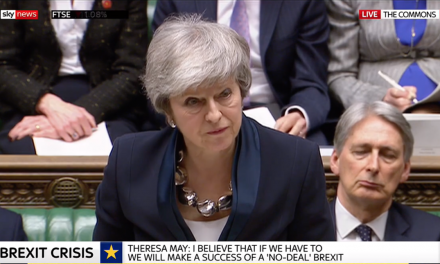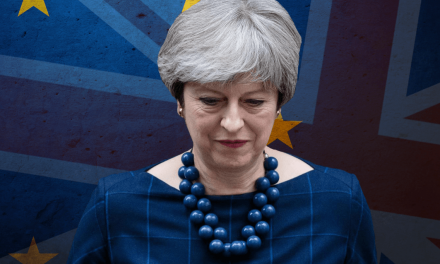Last November, in the framework of the European Economic Recovery Plan, the Commission has recommended the allocation of €5 billion of unspent money from the EU budget to be invested in European energy inter-connections and broadband infrastructure projects. A financial envelope of €3,500 million was proposed for projects in the field of energy, covering interconnections, offshore wind, and carbon capture and storage. The main volume of payments was foreseen to be made between 2009 and 2012 with the last payments, particularly for carbon capture and storage projects, foreseen for 2014/2015. To fund such projects, the Commission has proposed to amend the Interinstitutional Agreement of 17 May 2006 on budgetary discipline and sound financial management as regards the Multiannual Financial Framework. It proposed to transfer the margin for 2008 of heading 2 (Preservation and management of natural resources) of the 2007-2013 financial perspective to heading 1A (Competitiveness) amounting to €1,5 billion in 2009 and €2 billion in 2010.
The Commission has also proposed to mobilize through the existing EU Rural Development Funds €1 billion to improve broadband internet access in rural areas and €500 million to help farmers to tackle the “new challenges” identified in the CAP health check such as restructuring of the dairy sector, climate change, renewable energy, water management and biodiversity. The allocation between Member States will be based on historic allocations under the European Agricultural Fund for Rural Development therefore the UK’s share will be very small. Whereas Germany is entitled to 10% of all spending from the rural development budget the UK is entitled to 2.5%. According to the Minister for the Natural and Marine Environment, Wildlife and Rural Affairs at the Department for Environment, Food and Rural Affairs, Huw Irranca-Davies, the proposal would entail substantial net costs, the UK would contribute around 15% of the additional financing involved.
It was very embarrassment to the European Commission when the Council legal service has considered the money legally unavailable since there is no possibility of retroactively reviewing the 2008 allocations. Hence, the €3.5 billion margin from the 2008 budget cannot be used. The Commission spokesman, Johannes Laitenberger, has said “We have been aware of this legal position for some time” however "We don't agree with it. In our view, this is not primarily a legal question. It is a question of political will."
Initially, the EU member states could not agreed, particularly, on how to distribute the €3.5 billion allocated for energy projects. Some Member States were not interested in the projects at all. For instances, Germany prefers the Nord Stream pipeline instead of the Nabucco pipeline and the UK does not want to transfer funds aimed at rural development projects to help EU dairy farmers. Several Member States believe that unused money should be given back to them, proportionally to their contributions.
The differences among the Member States have led to the list of projects being revised by the Commission for the Energy Council last February. The Commission was trying, amending to the sums, to reduce the blocking minority of dissatisfied Member States. However, the revised list of projects was criticized by Member States such as Greece, Portugal and Spain who deemed it unfair. They argued that the Commission’s proposed projects affect Northern and Eastern European Member States therefore not much money has been devoted to southern countries.
The Council concluded, therefore, that the use of the margin under the 2008 ceilings of the EU's 2007-2013 financial framework was not possible. The ministers however could not agree on alternative sources of funding as well as on the time scale for projects.
On 20 March, the European Council reached an agreement on the deployment of €5 billion of EU funds for projects in the field of energy and broadband internet as well as CAP Health Check related measures. A deal could not be reached without accepting Germany demands that the funding will only be available for two years therefore the projects which are not ready to begin by the end of 2010 are not entitled to fund. The compromise text reads “(…) all legal commitments implementing the budgetary commitments made in 2009 and 2010 should be made before the end of 2010.”
It should be recall that because of the “urgency” the Commission’s has provided no impact assessment on the projects.
The European Council has called on the Presidency to speed up contacts with the European Parliament so that the Council and the European Parliament reach agreement before the parliamentary recess. The EU institutions were, therefore, in a hurry to reach an agreement. Hence, last April, in record time, negotiators from the Czech EU Presidency, the European Parliament and the Commission have reached an informal compromise on the European Energy Programme for Recovery (EERP). They endorsed the list of projects agreed by the European Council last March.
On 6 May, the European Parliament has endorsed the first reading agreement, approving €5 billion for energy infrastructure and rural broadband connections. The EU funding available for projects in the field of energy for 2009 and 2010 will be €3.98 billion. Moreover, according to the new list of eligible projects, annexed to the compromise deal, €2.365 billion has been allocated for gas and electricity infrastructure projects, €565m for offshore wind projects and €1,050 million for carbon capture and storage projects.
José Manuel Barroso has said that if the €5 billion were not spent within the time limits, the unspent funds would go back to the Member States’ except the budget authority decides otherwise. However, the MEPs have been demanding the inclusion of energy efficiency projects in the final list. Consequently, under the political agreement reached between MEPs and the Czech Presidency unspent funds of the EU Economic Recovery Plan could be used for energy efficiency and renewable energy projects instead of returning to the Member State’s coffers. In March 2010, the Commission should issue a report on the implementation of the Regulation. If such report concludes that there is a «serious risk» of non-implementation of gas and electricity infrastructure, offshore wind energy or carbon capture and storage projects, that it would not be possible to commit, by the end of 2010, a part of the funds foreseen for those projects, the Commission should propose additional energy projects, including energy efficiency and renewable energy projects.
Although it has not been said openly, the European Parliament and the Council also reached a compromise on the revision of the Interinstitutional Agreement of 17 May 2006 on budgetary discipline and sound financial management as regards the multiannual financial framework (2007-2013) required to fund the European Economic Recovery Plan. Given that the sums concerned represent less than 0.03% of the Union’s gross domestic product unanimity is not required but merely qualified majority. The EU Member States agreed unanimously on budgetary priorities that should not subsequently be revised through qualified majority.
They agreed that €2.6 billion will be available in 2009 and €2.4 billion in 2010. €2.6 billion will come from heading 1a (competitiveness for growth and employment) ceiling which will be increased of €2 billion in 2009 by decreasing the ceiling of Heading 2 (Conservation and management of natural resources, agriculture) by the same amount.
As regards energy projects €3.98 billion will be made available under heading 1a of the financial framework, €2 billion in 2009 and €1.98 billion in 2010. €1.02 billion allocated for the development of the broadband internet in rural areas and for facing the 'new challenges' defined in the context of the Health Check" will be made available within heading 2.
The remaining €2 400m would be funded through a “compensation Mechanism” to be defined. At the conciliation of the 2010 and 2011 budgetary procedures, the European Parliament, the Council and the Commission will examine all available sources that could provide for the compensation of funds.
According to the compromise text one of the options to compensate the €1.98 billion could be to use all margins left in the different headings at the end of 2009. Moreover, it states that margins left in 2010 and 2011 could be used if necessary. So much for budgetary discipline!
The financing of the EERP will require additional contributions from the Member States. Moreover, the recovery plan will bear up 50% of the costs of gas and electricity infrastructure and offshore wind energy projects whereas carbon capture and storage (CCS) installations may be co-financed by up 80% of the costs.
The Economic Secretary to the Treasury, Ian Pearson, has said to the European Scrutiny Committee that the agreement “ensures an estimated €265 million (£237 million) additional investment for UK energy projects (for electricity interconnection, offshore wind and carbon capture and storage) and for the provision of broadband infrastructure in rural areas.” Moreover, he said that “the UK post-abatement gross contribution associated with the Presidency compromise package will be an estimated €488 million (£435 million).”
The UK projects that will receive funding are the following: a 500MW Ireland/Wales interconnector (between Meath and Deeside) will get €110m, an offshore grid in the North Sea will get €165m, Aberdeen offshore wind farm will get 40m, all the carbon capture and storage projects at Tilbury, Longannet, Kingsnorth and Hatfield will get 180m. The European wind energy projects will get a considerable amount of money. There are doubts about the effectiveness of wind farms as a tool for solving energy problems whereas they may cause damage to flora, fauna and landscapes.
The European Commission has recently published a call for proposals for €4 billion to fund energy investments under the European energy programme for recovery (EEPR). The Commission is planning to sign the first grant agreements and decisions before the end of the year.


